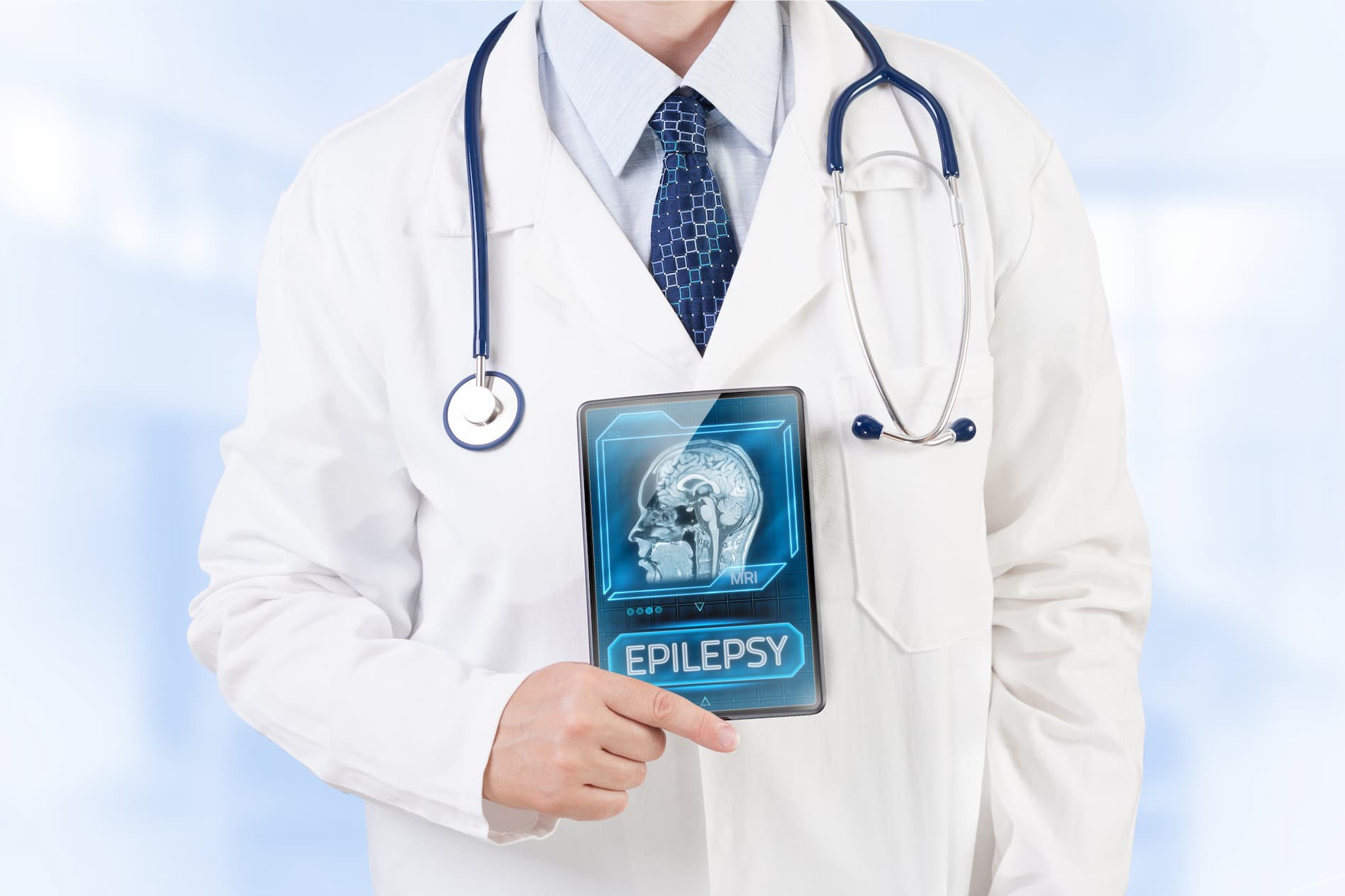Epilepsy Treatment in Turkey
Healthy Türkiye helps you find the best epilepsy treatment in Turkey at affordable prices and adopts a 360-degree service approach in all areas of health through affiliated hospitals.
- Homepage
- Medical Treatment
- Epilepsy Treatment in Turkey

About Epilepsy Treatment in Turkey
The goal of epilepsy treatment in Turkey, seizures is to achieve a seizure-free status without adverse effects. This goal is accomplished in more than 70% of patients who require treatment with anticonvulsants. Epilepsy is a central nervous system disorder in which brain activity becomes abnormal, causing seizures or periods of unusual behavior, sensations, and sometimes loss of awareness. Anyone can develop epilepsy, it affects both males and females of all races, ethnic backgrounds, and ages.
Seizure signs can vary widely. Some patients with epilepsy simply stare blankly for a few seconds during a seizure, while others repeatedly twitch their arms or legs. Having a single seizure doesn’t mean you have definitely epilepsy. At least two seizures without a known trigger that happen at least 24 hours apart are usually required for an epilepsy diagnosis.
In Turkey, epilepsy treatment with medications or sometimes surgery can control seizures for the majority of people with epilepsy. Some patients require lifelong treatment to control seizures, but for others, the seizures eventually go away. Some children with epilepsy can outgrow the condition with age.
With Healthy Türkiye, you can plan your epilepsy treatment in Turkey with a free consultation. We guarantee that you will make your definitive diagnosis with a team of experts and complete your epilepsy treatment in Turkey without any problems. You don’t have to fight epilepsy seizures alone.

Epilepsy Treatment Procedure in Turkey
Epilepsy is a neurological condition that causes unprovoked, recurrent seizures. An epilepsy seizure is a sudden rush of abnormal electrical activity in the brain. Specialists diagnose epilepsy when you have two or more seizures with no other identifiable cause. A seizure can also be caused by different factors which may affect the brain. For example, a fever may cause a febrile seizure. Other causes of seizures include lack of oxygen, a low blood sugar level, poisons, and a lot of alcohol. Seizures caused by these factors are not classed as epilepsy.
Epilepsy affects 50 million people around the world, according to the World Health Organization (WHO). According to research published in 2021, men develop epilepsy more often than women, possibly because of higher exposure to risk factors such as alcohol use and head trauma. There’s currently no specific cure for epilepsy, but it can be managed with medications and other strategies.
What is a Seizure?
A seizure is a short episode of symptoms caused by a burst of abnormal electrical activity in the brain and typically, a seizure lasts from a few seconds to a few minutes.
The brain contains millions of nerve cells also known are neurons). Normally, the nerve cells are constantly sending electrical messages down the nervous system to all parts of the body. Different sites of the brain control different parts and functions of the body. Therefore, the symptoms that occur during a seizure depend on where the abnormal burst of electrical activity occurs.
Signs that may occur during a seizure can affect your muscles, sensations, behavior, emotions, consciousness, or a combination of these. Specialists generally classify seizures as either focal or generalized, based on how and where the abnormal brain activity begins.
Focal seizures
When seizures appear to result from abnormal activity in just one area of the brain, they’re called focal seizures. These seizures fall into two categories:
Focal seizures without loss of consciousness: Once called simple partial seizures, these seizures don’t cause a loss of consciousness, however, they may alter emotions or change the way things look, smell, feel, taste or sound. Some patients experience deja vu. This type of seizure may also result in involuntary jerking of one body part, such as an arm or leg, and sensory symptoms such as tingling, dizziness, and flashing lights.
Focal seizures with impaired awareness: Once called complex partial seizures, these seizures cause a change or loss of consciousness or awareness. This kind of seizure may seem like being in a dream. During a focal seizure with impaired awareness, you may stare into space and respond abnormally to your environment or perform repetitive movements, such as hand rubbing, chewing, swallowing, or walking in circles.
Signs of focal seizures may be confused with other neurological disorders, such as migraine, narcolepsy, or mental illness.
Generalized seizures
Seizures that appear to involve all sites of the brain are called generalized seizures. Six kinds of generalized seizures exist.
Absence seizures: Absence seizures, previously known as petit mal seizures, typically develop in children. They’re characterized by staring into space with or without subtle body movements such as eye blinking or lip smacking and only last between 5-15 seconds. These seizures may occur in clusters, happening as often as 75-100 times per day, and cause a brief loss of awareness.
Tonic seizures: Tonic seizures cause stiff muscles and can affect consciousness. These seizures often affect muscles in your back, arms, and legs and may cause you to fall to the ground.
Atonic seizures: Atonic seizures cause a loss of muscle control. Since this most often affects the legs, it usually causes you to suddenly collapse or fall down.
Clonic seizures: Clonic seizures are associated with repeated or rhythmic, jerking muscle movements and these seizures usually affect the neck, face, and arms.
Myoclonic seizures: Myoclonic seizures usually appear as sudden brief jerks or twitches and often affect the upper body, arms, and legs.
Tonic-clonic seizures: Tonic-clonic seizures, previously known as grand mal seizures, are the most dramatic kind of epileptic seizure. This can cause an abrupt loss of consciousness and body stiffening, twitching, and shaking. Also, this sometimes causes loss of bladder control or biting your tongue
Causes of Epilepsy
Most of the time, in up to 70% of cases, the cause of seizures is not known. Known causes include:
Genetics: Some types of epilepsy are more likely to run in families (inherited). Researchers believe that although there’s some evidence that specific genes are involved, the genes only increase the risk of epilepsy, and other factors can be involved. There are certain epilepsies that result from abnormalities that affect how brain cells can communicate with each other and may lead to abnormal brain signals and seizures.
Mesial temporal sclerosis: This is a scar that forms in the inner part of your temporal lobe that can give rise to focal seizures.
Head injuries: Head injuries may result from vehicular accidents, falls, or any blow to the head.
Brain infections: Infections may include brain abscess, meningitis, encephalitis, and neurocysticercosis.
Immune disorders: Conditions that cause your immune system to attack brain cells can lead to epilepsy.
Developmental disorders: Birth abnormalities affecting the brain are a frequent cause of epilepsy, particularly in people whose seizures aren’t controlled with anti-seizure drugs. Some birth abnormalities known to cause epilepsy include focal cortical dysplasia, polymicrogyria, and tuberous sclerosis.
Metabolic disorders: Patients with a metabolic condition can have epilepsy. A healthcare provider can detect many of these disorders through genetic tests.
Brain conditions and brain vessel abnormalities: Brain health issues that may cause epilepsy include brain tumors, strokes, dementia, and abnormal blood vessels, such as arteriovenous malformations.
Diagnoses for Epilepsy Treatment in Turkey
Sometimes it is difficult for the doctors to confirm that you have had a seizure. The most important part of confirming the diagnosis is the description of what happened because other conditions can look like seizures, for example, faints, panic attacks collapses due to heart problems, and breath-holding attacks in children.
There is no one test to confirm a diagnosis of epilepsy, however, tests such as brain scans, an electroencephalogram, and blood tests may help to make a diagnosis.
A brain scan: Generally an MRI scan or CT scan shows the structure of different parts of the brain. This may be performed in some patients with epilepsy.
Electroencephalograph (EEG): In this test records the electrical activity of the brain. Special stickers are placed on various parts of the scalp and they are connected to the EEG machine. This amplifies the electrical messages given off by the brain and records their pattern on paper or computer. However, a normal recording does not rule out epilepsy, and not all EEG result abnormalities are related to epilepsy.
Electrocardiogram (ECG): Sometimes a seizure can be triggered by an issue with your heart, such as an abnormal heart rhythm, and seizures due to heart rhythm problems are not classed as epilepsy.
Tests may help to decide if the event was a seizure, or caused by something else. It is usual for a diagnosis of epilepsy to be made after one seizure, as the definition of epilepsy is recurrent seizures. For this reason, a doctor may suggest waiting and seeing if it happens again before making a firm diagnosis of epilepsy.

We Care About Your Health
Healthy Türkiye provides the best for your health and comfort. You will feel privileged with us.
7/24 Quality Personal Assistance Throughout Your Journey
Customizable for You All-Inclusive Packages
Get the Right Advice for your Health
Types of Epilepsy Treatment in Turkey
Epilepsy is sometimes referred to as a long-term condition, as people usually live with it for many years, or for life. Although generally epilepsy cannot be ‘cured’, for most people, seizures can be ‘controlled’, so that epilepsy has little or no impact on their lives. Epilepsy treatment in Turkey is often about managing seizures in the long term.
In Turkey, epilepsy treatment is usually only considered after a diagnosis has been made which usually happens after someone has had repeated seizures. A diagnosis should be made by a specialist, with expertise in epilepsy. Some treatment options include:
Anti-epileptic (anticonvulsant, antiseizure) medications: Anti-epileptic drugs can help reduce the number of seizures you have. In some patients, they may eliminate seizures. To be most effective, the medication must be taken exactly as the doctor prescribed.
Vagus nerve stimulator(VNS): VNS is surgically placed under the skin on your chest and electrically stimulates the nerve that runs through your neck to prevent seizures.
Ketogenic diet: According to the Epilepsy Foundation, more than half of children who do not respond to medications benefit from the ketogenic diet, which is a high-fat and low-carbohydrate diet.
Brain surgery: The site of the brain that causes seizure activity can be removed or altered if you and your healthcare team determine it’s the right treatment for your condition.
Medications for Epilepsy Treatment in Turkey
Epilepsy medicines work by stabilizing the electrical activity of the brain. You need to take drugs every day to prevent seizures. Deciding on which medicine to prescribe depends on such things as:
Your type of epilepsy.
Your age.
Other medicines that you may take for other conditions, and their possible side effects.
Whether you are pregnant or whether you are planning a pregnancy.
Medicine treatment can prevent seizures in most cases. A low dose is generally started at first. The first dose may be increased if this fails to prevent seizures. In some cases, two medicines are needed to prevent seizures.
The decision to begin medication should be made by weighing up all the pros and cons of starting, or not starting, the medicine. It is unusual to start treatment after the first seizure, a common option is to wait and see after the first seizure. Epilepsy medication is commonly started after a second seizure that occurs within 12 months of the first. However, there are no definite rules, and the decision to begin medication should be made after a full discussion with your doctor.
Medicines used to treat epilepsy include: Carbamazepine, clobazam, clonazepam, eslicarbazepine, ethosuximide, gabapentin, lacosamide, lamotrigine, levetiracetam, oxcarbazepine, perampanel, phenobarbital, phenytoin, pregabalin, primidone, rufinamide, sodium valproate, tiagabine, topiramate, vigabatrin and zonisamide. They all come with different brand names.
Some points about medication for epilepsy include the following:
You should ask the doctor how long treatment is likely to be advised. This can vary from case to case. If you have not had seizures for several years, you may wish to try stopping the medication. However, this depends on your particular kind of epilepsy, as some types will need medication for life. Your life circumstances may influence the decision about stopping the medication. For instance, if you have recently regained your driving license, the risk of losing it again for a year if a seizure occurs may affect your decision.
Although the list of possible side effects for each medicine seems long, in practice, most people have few or no side effects, or just minor ones. You should ask the doctor which side effects are important to look out for. If you develop a troublesome side-effect it can be dose-related or can settle in time. Alternatively, a switch to another medicine can be advised.
Medicines that are used for other conditions may interfere with epilepsy medication. If you are prescribed or buy another medicine, you should remind your doctor or pharmacist that you take medication for epilepsy. Because even things like indigestion medicines may interact with your epilepsy medication. This interaction may increase the chance of having a seizure.
Surgery for Epilepsy Treatment in Turkey
If at least two drugs have been ineffective in controlling seizures, a doctor may consider recommending epilepsy surgery. The studies found that 62% of adults and 50% of children with epilepsy had no seizures for around 7 years after epilepsy surgery. According to the National Institute of Neurological Disorders and Stroke, some surgery options include:
Lobectomy: The largest part of your brain, the cerebrum, is divided into four sections called lobes, the frontal, parietal, occipital, and temporal lobes. Temporal lobe epilepsy, in which the focus of the seizure is within the temporal lobe, is the most common kind in adolescents and adults. In a temporal lobe resection, brain tissue in this area is cut to remove the focus of the attack, extracorporeal resection involves removing brain tissue from areas outside the temporal lobe. This is the oldest epilepsy surgery.
Subtibial multiple resections (MST): This operation can help control seizures that begin in areas of your brain that cannot be safely removed. The surgeon makes a series of superficial cuts in the brain tissue. These wounds impede the flow of seizures but don’t disturb normal brain activity. This operation leaves your abilities intact.
Corpus callosotomy: The surgeon will cut the neural connections between the two halves of the brain. This prevents epilepsy seizures from spreading from one side of the brain to the other. It works best for patients with severe and uncontrollable forms of epilepsy, and for those with severe seizures that can lead to violent falls and serious injury.
Hemispherectomy: In extreme cases, the surgeon may need to cut out a hemisphere, which is one-half of the cerebral cortex of the brain.
For some patients, undergoing surgery may reduce the frequency and severity of their seizures. However, it is usually important to continue taking antiseizure medication for several years following the procedure.
Vagus Nerve Stimulation (VNS) for Epilepsy Treatment in Turkey
Vagus nerve stimulation is a type of epilepsy treatment in Turkey. A doctor puts a small device similar to a pacemaker into your body to trigger your vagus nerve, which runs from your brain to your torso, this device serves many organs, including your voice box, lungs, heart, and digestive tract.
The doctors put you to sleep with general anesthesia and they insert a device under the skin in the upper part of your chest. After, they run a wire under your skin from the stimulator to an electrode attached to the vagus nerve, which they can access through a small cut in your neck. After it’s put in, the stimulator is programmed to send out pulses of electricity at regular intervals, depending on your epilepsy.
The doctor can adjust the settings and raise the current slowly. The doctor will also give you a handheld magnet. When you bring it near the stimulator, this creates a current of electricity to stop a seizure as it happens or to make it less severe.
VNS is an add-on therapy, which means you use it in addition to another treatment type. You should keep taking your seizure medications. But many patients who have VNS notice that their seizures are less severe and happen as much as 20% to 50% less often.
Diet for Epilepsy Treatment in Turkey
Diet can play a role in reducing seizures. A 2014 review of research that appeared in neurology treatment in Turkey reports suggested that high-fat, low-carbohydrate diets could benefit patients with epilepsy.
Keto Diet: The keto diet is low in carbohydrates and protein and very high in fat, and evidence suggests that it can reduce the frequency of seizures, and some people with epilepsy who follow the diet stop experiencing seizures altogether.
The keto diet may be especially effective for children with epilepsy, which does not respond to medical treatment. Modified versions of the keto diet may be more suitable for adolescents and adults. It is important to note that a medical professional should monitor anyone using a keto diet to help control epilepsy. This is to ensure that the patient is dieting safely and getting the most benefits.
The modified Atkins diet: This diet is very low in carbohydrates and high in fat. It does, also, allow for a greater choice of foods. It is crucial to count carbohydrates and ensure that the body is receiving enough calories from fats.
The low-glycemic index diet: This diet has a high fat allowance, however, it permits more protein than the keto diet.
The medium-chain triglyceride (MCT) diet: This is similar to the classic keto diet, but each meal tends to include fat from MCTs, such as those in oils or emulsions, so it allows more freedom when choosing carbohydrate and protein sources.
Living and Coping with Epilepsy
Patients with epilepsy are at risk for two life-threatening conditions: tonic-clonic status epilepticus and sudden unexplained death in epilepsy (SUDEP). Tonic-clonic status epilepticus is a long-lasting epilepsy seizure that’s considered a medical emergency. If not stopped within about 30 minutes, it can cause permanent injury or death.
SUDEP is a rare condition in which young or middle-aged people with epilepsy die without a direct cause. It accounts for less than two percent of deaths among people with epilepsy and the risk is about one in 3,000 per year for all people with epilepsy. Although the risk is low, patients with epilepsy also can die from inhaling vomit during or just after a seizure.
Most women with epilepsy can become pregnant, but they should discuss their epilepsy and the drugs they are taking with their doctors before getting pregnant. Many patients with epilepsy take high doses of medication that can lead to potentially harmful drug exposure to unborn babies. Women with epilepsy have a 90 percent or better chance of having a healthy baby.
Laws vary from country to country, but if your seizures are not well managed, you may not be allowed to drive. Because you never know when a seizure will occur, many everyday activities like crossing a busy street can become dangerous, these problems can lead to loss of independence.
In addition to regular doctor visits and following your treatment plan, here are some tips you can do to cope:
Keep an epilepsy seizure diary to help identify possible triggers so you can avoid them.
Wear a medical alert bracelet to let people know that you have epilepsy so you get the right medical help if you have a seizure and can’t speak at this time.
Teach the people closest to you about seizures and what to do in an emergency.
Seek professional help if you have symptoms of depression or anxiety.
Join a support group for people with seizure disorders.
Engage in healthy activities like eating a nutrient-rich, balanced diet and getting regular exercise.
Keeping to regular mealtimes and bedtimes may be helpful.
A small number of patients with epilepsy have photosensitive seizures. This means that seizures may be triggered by flickering lights from the TV, video games, and disco lights. Avoiding these lights may be an important part of treatment for some people. Photosensitive epilepsy can be confirmed by hospital tests. Most people with epilepsy do not have photosensitive seizures and do not have to avoid these lights

2026 Cost of Epilepsy Treatment in Turkey
All types of medical attention like epilepsy treatment are very affordable in Turkey. Many factors are also included in determining the cost of epilepsy treatment in Turkey. Your process with Healthy Türkiye will last from the time you decide to have epilepsy treatment in Turkey until the time you are fully recovered even if you are back home. The exact epilepsy treatment procedure cost in Turkey depends on the type of operation involved.
The cost of epilepsy treatment in Turkey does not demonstrate many variations in 2026. Compared to costs in developed countries like the United States or the UK, epilepsy treatment costs in Turkey are relatively low. So, it’s no wonder patients from across the world visit Turkey for epilepsy treatment procedures. However, the price is not the only factor affecting choices. We suggest looking for hospitals that are safe and have epilepsy treatment reviews on Google. When people decide to seek medical help for epilepsy treatment, they will not only have low-cost procedures in Turkey, but also the safest and best treatment.
At clinics or hospitals contracted with Healthy Türkiye, patients will receive the best epilepsy treatment from specialist doctors in Turkey at affordable rates. Healthy Türkiye teams to provide medical attention to epilepsy treatment procedures and high-quality treatment to patients at a minimum cost. When you contact Healthy Türkiye assistants, you can get free information about the cost of epilepsy treatment in Turkey and what this cost covers.

Why Choose Turkey for Epilepsy Treatment?
Turkey is a common choice among international patients seeking advanced epilepsy treatment. Turkey’s health procedures are safe and effective operations with a high success rate like epilepsy treatment. The increasing demand for high-quality epilepsy treatment at affordable prices has made Turkey a popular medical travel destination. In Turkey, epilepsy treatment is performed by highly experienced and trained doctors with the most advanced technology in the world. epilepsy treatment is done in Istanbul, Ankara, Antalya, and other major cities. The reasons for choosing epilepsy treatment in Turkey are as follows:
High-quality hospitals: Joint Commission International (JCI) accredited hospitals have dedicated epilepsy treatment units that are specially designed for patients. International and national strict protocols provide effective and successful epilepsy treatment for patients in Turkey.
Qualified experts: The expert teams include nurses and specialist doctors, together to carry out epilepsy treatment according to the patient’s needs. All the included doctors are highly experienced in performing epilepsy treatment.
Affordable price: The cost of epilepsy treatment in Turkey is affordable compared to Europe, the USA, the UK, Singapore, Australia, etc.
The high success rate: Highly experienced specialists, the best available technology, and stringently followed safety guidelines for post-operative care of the patient, resulting in a high success rate for epilepsy treatment in Turkey.
All-Inclusive Package for Epilepsy Treatment in Turkey
Healthy Türkiye offers all-inclusive packages for epilepsy treatment in Turkey at much lower prices. Extremely professional and experienced doctors and technicians carry out high-quality epilepsy treatment. The cost of epilepsy treatment in European countries can be quite expensive, especially in the UK. Healthy Türkiye provides cheap all-inclusive packages for a long and short stay of epilepsy treatment in Turkey. Because of many factors, we can provide you with many opportunities for your epilepsy treatment in Turkey.
The price of epilepsy treatment differs from other countries due to medical fees, staff labor prices, exchange rates, and market competition. You can save much more on epilepsy treatment compared to other countries in Turkey. When you purchase an epilepsy treatment all-inclusive package with Healthy Türkiye our healthcare team will present hotels for you to choose from. In epilepsy treatment travel, you will have the price of your stay included in the all-inclusive package cost.
In Turkey, when you purchase epilepsy treatment all-inclusive packages through Healthy Türkiye, you will always receive VIP transfers. These are provided by Healthy Türkiye, which is contracted with highly qualified hospitals for epilepsy treatment in Turkey. Healthy Türkiye teams will organize everything about epilepsy treatment for you and have you picked up from the airport and safely brought to your accommodation.
Once settled in the hotel, you will be transferred to and from the clinic or hospital for epilepsy treatment. After your epilepsy treatment has been successfully completed, the transfer team will return you to the airport in time for your flight home. In Turkey, all packages of epilepsy treatment can be arranged upon request, which relaxes the minds of our patients.
The Best Hospitals in Turkey for Epilepsy Treatment
The best hospitals in Turkey for epilepsy treatment are Healthy Türkiye, Memorial Hospital, Acıbadem International Hospital, and Medicalpark Hospital. These hospitals attract patients from all over the world seeking epilepsy treatment due to their affordable prices and high success rates.
Best Doctors and Surgeons in Turkey for Epilepsy Treatment
The best doctors and surgeons in Turkey for epilepsy treatment are highly skilled professionals who offer specialized care and advanced procedures. With their expertise and state-of-the-art techniques, these specialists ensure that patients receive high-quality epilepsy treatment and achieve optimal health results.

Frequently Asked Questions
Most people with epilepsy live a full life, however, the risk of early death is higher for some.
Moderate to heavy alcohol use is never recommended for people with epilepsy because alcohol and some seizure drugs have similar side effects
AEDs are the most commonly used treatment for epilepsy.
Most seizures last from 30 seconds to two minutes. A seizure that lasts longer than five minutes is a medical emergency.
Any type of epileptic seizure could potentially affect your memory, either during or after a seizure.
